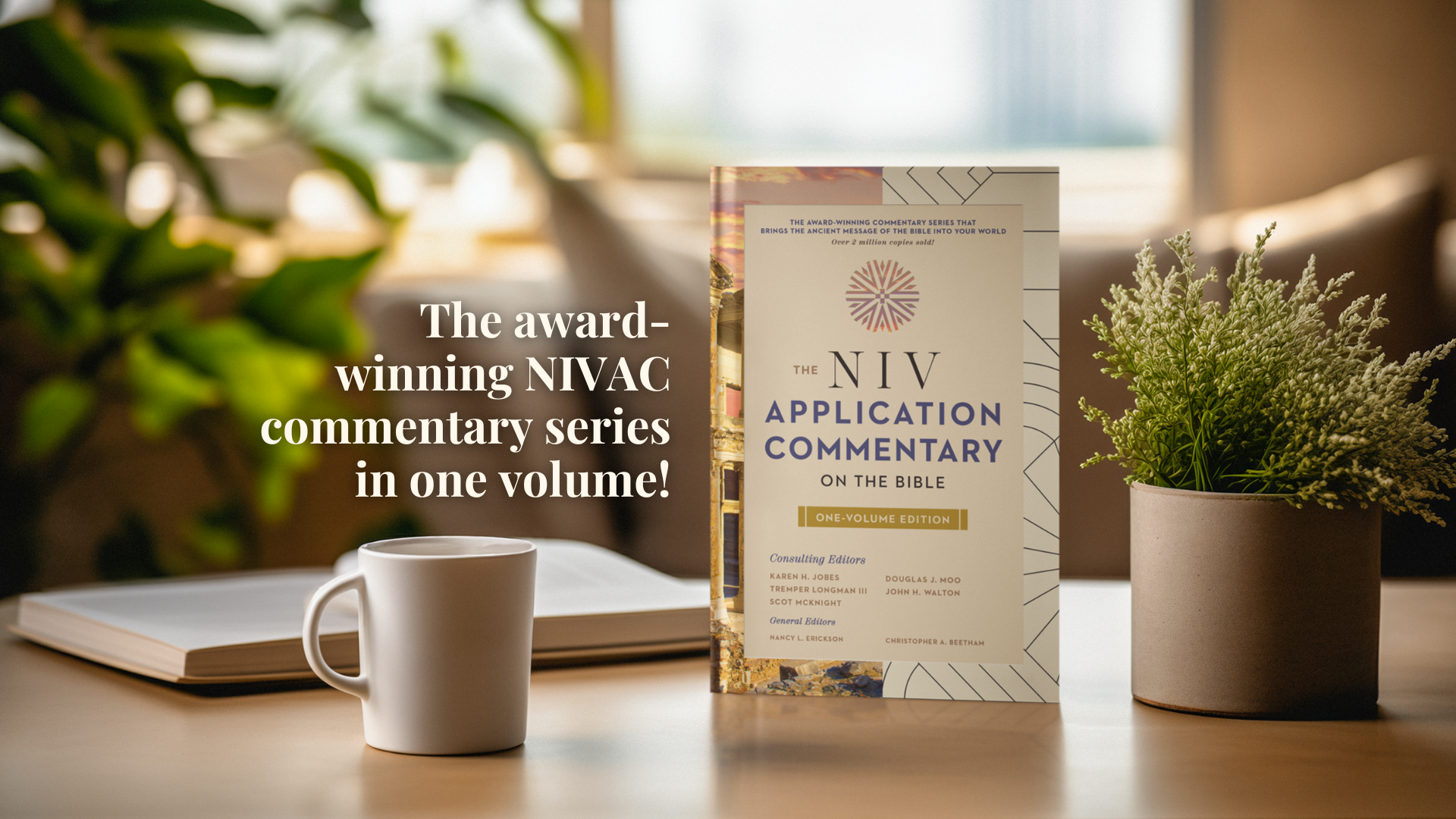This week the blog is sponsored by Zondervan Reflective.
This excerpt from The NIV Application Commentary on the Bible: One-Volume Edition explains the original meaning of Paul’s words in Romans 8:31-39 and shows how his message can apply to our lives today. We begin with words from the Apostle Paul:
31 What, then, shall we say in response to these things? If God is for us, who can be against us? 32 He who did not spare his own Son, but gave him up for us all—how will he not also, along with him, graciously give us all things? 33 Who will bring any charge against those whom God has chosen? It is God who justifies. 34 Who then is the one who condemns? No one. Christ Jesus who died—more than that, who was raised to life—is at the right hand of God and is also interceding for us. 35 Who shall separate us from the love of Christ? Shall trouble or hardship or persecution or famine or nakedness or danger or sword? 36 As it is written:
“For your sake we face death all day long;
we are considered as sheep to be slaughtered.”[a]
37 No, in all these things we are more than conquerors through him who loved us. 38 For I am convinced that neither death nor life, neither angels nor demons,[b] neither the present nor the future, nor any powers, 39 neither height nor depth, nor anything else in all creation, will be able to separate us from the love of God that is in Christ Jesus our Lord. (Romans 8:31-39, New International Version)
Original Meaning
The Work of God for Us in Christ (8:31–34). Paul here launches into a new direction with a question. “These things” (v. 31) refers to the many reasons for our confidence that Paul has rehearsed in chapters 5–8. All those reasons can be neatly summed up in one statement: God is “for us” (v. 31). Who, then, Paul rightly asks, can be “against us?” Of course, we know many people and things still oppose us. But Paul’s point is that with God on our side, none of this opposition ultimately matters.
Christ not only defends us but loves us and enters into relationship with us, and nothing will ever separate us from that love.
Verse 32 reinforces Paul’s point. God’s being “for us” is seen climactically in his giving of his beloved Son. If he has done that, we can be certain he will also give us “all things”—or, to put it in the terms of verse 31, nothing can ultimately oppose us.
“Bring [a] charge” (v. 33) is the first of several judicial terms. Again, Paul’s point is not that nothing will ever try to prosecute us in the court of God’s justice. But the prosecution will be unsuccessful, for God has chosen us to be his and has justified us already. Paul alludes at this point to Isaiah 50:8–9.
Verse 34 provides more evidence for the same point. No one can successfully condemn us because Christ has died for us and has been raised to life to be our intercessor before the Father. With such a defense attorney, it is no wonder the prosecution loses its case!
The Love of God for Us in Christ (8:35–39). The question at the beginning of verse 35 sets the tone for verses 35–39 by introducing Christ’s love into the picture. Christ not only defends us but loves us and enters into relationship with us, and nothing will ever separate us from that love. To make sure we get the point, Paul specifies some threats at the end of verse 35. As a comparison with 2 Corinthians 11:26–27 and 12:10 reveals, Paul himself has gone through most of these. He has learned by experience that they cannot disrupt his relationship with Christ.
The quotation of Psalm 44:22 in verse 36 is a bit of a detour in the logic of Paul’s argument. But the detour reveals two of his key concerns: to remind us that suffering is a natural and expected part of the Christian life, and to root the experiences of Christians in the experience of God’s old-covenant people.
With verse 37, Paul returns to the main line of his teaching in verse 35. In all the varied difficulties of life, we are “more than conquerors.” Paul concludes his celebration of God’s love for us in Christ with his own personal testimony: “I am convinced . . .” (vv. 38–39). There is nothing in all the world—whether we are dead or alive, whether they are things we now face or things we will face in the future, whether they are above us or below us—that can separate us from the “love of God that is in Christ Jesus our Lord” (v. 39). As the chapter began with “no condemnation” (8:1), so it ends with the bookends of “no separation” (8:35, 39).
Application. Paul’s emphatic assertion that no spiritual being can separate us from Christ is needed in the church today. We need to recognize and proclaim that God in Christ has won a victory over the “powers and authorities” (Col 2:15) and that they have no power to keep us from inheriting the salvation God has promised to all who love him. Nothing on earth can separate us from God’s love for us in Christ, and neither can anything in heaven.
Read more like this in the The NIV Application Commentary on the Bible, a masterful blend of content written by today’s top academics in a way that is compelling and easy to understand for anyone–no formal training or seminary degree required. Now on sale!










